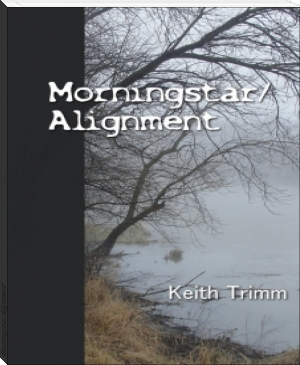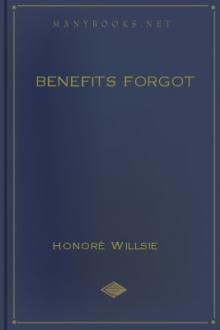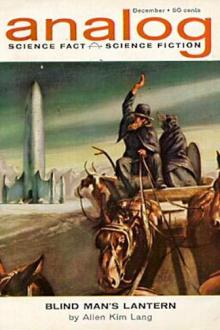Morningstar/Alignment, Keith Trimm [feel good novels txt] 📗

- Author: Keith Trimm
Book online «Morningstar/Alignment, Keith Trimm [feel good novels txt] 📗». Author Keith Trimm
"I have never seen anything like this before," the doctor said adjusting his waders.
"We’re going down, right?" the grad student asked with his head tilted in curiosity.
"That’s why I called you here," the sheriff answered. "Follow me," he added and they walked the edge of the crater to where the crane was located.
"We attached the bucket so we could go down inside," the sheriff told them. "We’ll need to take some supplies with us," he added pointing to two gas lanterns and two square end shovels leaning up against the bucket. The men gathered up the gear and strained to climb into the bucket that created quite a tight fit for the three of them. With a signal from the sheriff, the crane operator pushed a lever and the bucket raised them off the ground with a noticeable jerk, knocking them off balance.
The long arm swung them over the crater until they were centered over the cavern on the north side. Once in place, the sheriff waved to the crane operator and they slowly descended thirty feet into the hole.
Moments later the bucket struck ground, sinking a foot into the mud.
"Here we are," the sheriff said swinging his legs over the bucket. He slid off the side and landed knee deep in sucking mud. "Crap!" he yelled, and waddled slowly out of the deep end towards the cavern like a penguin. The other two men quickly followed climbing to higher ground at the mouth of the cavern.
The grad student trudged to the side of the tunnel and scraped the mud off his boots with the shovel. He stepped to the side of the tunnel and touched it with his hand like it was an eggshell. Wiping off an area at eye level, he examined it close and backed off. He looked at the mud on his palm and then to the sheriff.
"This has too many even shapes and straight lines," he said to the men. "The shape is too perfect, too man made," he added turning back to face the other two. The space reminded him of the inside of a railroad passenger car with windows running the length of both sides. He noticed what looked like rows of evenly spaced seats receding into the darkness. All three men stood dumbfounded as they craned their necks looking up at the vastness of the cavern.
"Let’s get these lanterns lit," the sheriff said producing a flip top lighter. The doctor turned on the gas, lifted the globe, and allowed the sheriff to ignite the mantels. With a tweak of a screw, the globes burned a brilliant white, illuminating the entrance and shooting dark shadows dancing on the walls. The sheriff then lit the grad student’s lantern and turned to journey inside.
"Are we going to be safe in there?" the doctor asked.
"We have no idea if the structure is sound," the grad student added. "It could cave in at any time."
"I’m willing to take that risk," the sheriff replied and went forth into the cavern. A moment later he was joined by the other two men, lanterns and shovels in tow. The deeper they went the darker it became. The only natural light visible was that seeping in from the mouth of the tunnel. The lanterns cast a harsh glow on everything they touched projecting black shadows that moved as they did.
"These look like chairs," the grad student stated in a matter of fact tone. He moved closer to one of them and wiped the mud away from the top of one of the objects. "Trans Pacific Airlines," he said aloud as he read the writing illuminated by the lantern.
"Airlines?" the doctor asked. "Let me see that!" The doctor moved in closer and put his lantern right up to the writing and read it for himself. "This is a plane?" he asked out loud. "The only planes of this size I know of are all military, not civilian use," he added.
They made their way further into the structure. "That explains a lot," the grad student said. "The regularities, the symmetry. Those cut outs up there must be rows of windows."
"This is impossible," the doctor replied. "We are twenty feet below the surface of the Earth! How could a plane find its way under the ground? Did it crash? Where are the passengers?"
"Down there," the sheriff answered, pointing to the floor. Assorted bones were scattered all over the floor in a mix match of body parts. Long bones, ribs, and skulls were the most noticeable remains littering the ground.
"Watch where you step!" the sheriff instructed the men.
"We have to get the authorities!" the doctor yelled to the sheriff. "I refuse to go on any further!"
" I am the authorities!" the sheriff yelled back. "Now follow me or get out!" he barked at the two men. A moment of tension and silence filled the room, as they tried to make sense of the events unfolding. The sheriff turned and proceeding into the cavern followed by the two worried college teachers.
"If this is an airplane then there should be a cock pit," the sheriff said coldly. "Maybe we can get some information there,"
The lights continued to dance on the walls as they moved onward, deeper and deeper inside.
"This is it I think," the sheriff said pointing to a closed door a few feet in front of them. He grabbed the handle and gave it a hard pull knocking mud and water into the air as he freed it from the grip of its tight hinges. The door broke loose and fell to the floor splashing mud in all directions, covering the men. The hinges snapped under the pressure and the doctor took notice of there rusted condition.
"Bring the light over here," the sheriff said directing them to move in closer. "What the…?" the sheriff asked as he reached into the cockpit extracting an object from the floor. In his hands he held the skull of a dog, its fangs long and sharp, and its eyes hollow and empty. "Now this is one for the papers," the sheriff said looking back at the men. To his amazement they did not seem surprised by this discovery at all. "Doesn’t this seem a bit odd to you?" he asked with his brow furled in a questioning look.
"We’re no longer playing this game," the doctor replied.
"What game?" the sheriff asked. "You think I planted this here?"
"Absolutely," the doctor replied. The mood in the room was noticeably changed.
"You don’t recognize us?" the grad student asked the sheriff.
"Should I?" the sheriff responded.
The grad student stepped forward and set his lantern on the floor. "Your leader has fallen because he is a flawed spirit. He was given free will and used it to turn from his creator, only to be cast from heaven and forced to dwell here for eternity. You as well, cast from heaven along with a third of the angels are flawed, and unable to see the truth and the light standing before you."
The sheriff panicked, but held his ground. The two men standing before him raised their shovels in an attack posture. With a graceful and swift motion, the grad student took a swing at the sheriff striking him hard on the shoulder, knocking him down, crashing to the ground. Stunned and dazed, the sheriff pulled his 38-caliber pistol, raised the gun and popped off six rounds into the men, dropping them to the ground. The lanterns fell and the lights went out, and in the darkness the sheriff’s eye’s glowed red. "You should never bring a knife to a gun fight," he said out loud.
Chapter 1
October 24, 1999
Dr. Tony Rhine stood at the bottom of the lecture hall looking up into the faces of his students. To his right was an overhead projector with a transparency illuminated on the silver screen propped up against the black board. He stood at the podium dressed in a white shirt, slacks and a tie. Not too daring for a twenty-nine year old college professor in a mid-western university.
The students sat, notebooks ready, waiting for the lecture to begin. Faces of interest, faces of lethargy, and faces of hangover looked down upon him as he paced back and forth across the cream tile floor. He shuffled some transparencies in his hands, settling for a different one, focusing the projector for the third time.
He looked up at the student body and switched on his microphone. "Today I have a special treat for you" he said. The faces did not change. It was too early in the morning. "I have written a paper. Something I hope to have published soon." He straightened his podium out acting unusually nervous for someone who speaks in public for a living.
"We are not currently working on the topic I have chosen," he said scanning back and forth. "You will not be tested on this material. I am looking for some feedback."
The sound of notebooks closing reverberated throughout the hall and a collective sigh-of-relieve swept the students hovering above.
"Think of this as kind of a day off and relax," he said with a rare smile.
"Is this extra credit?" a voice perked up from the rear followed by chuckling.
"No Brad, this is not extra credit. Maybe for your brain, but that is about it." He answered. "Well hold it!" he said scratching his ear. "If any of you want to submit a paper based on today’s lecture, I will consider it extra credit. It must though, be on the same subject as what I am going to be speaking about," he added. "Ok Brad?"
"Alright Dr. Rhine" Brad said and the class erupted with laughter.
"For those of you who want the extra credit, I advise you to open your notebooks again and get you pencils ready. I will make copies for anyone who wants one. Of my lecture that is."
Tony took a deep breath and faced his audience with his original material. Just like working a stand up gig he thought. He looked down to his prepared paper and spoke aloud.
"I believe that most people have in inaccurate perception of the passage of time," he started off, keeping his eye on his best student. "People tend to think of it as a highway, the past disappearing quickly behind us with the future lying just ahead. We are like passengers in a car watching the landscape move past as we move down the road. If we wish, we could turn the vehicle around visiting our past, or speed up visiting our future. This is based on our human need to place a measuring stick on everything around us, and to explain concepts beyond our comprehension. Take for example the outdated need to explain life and death by creating an all-powerful God, who watches over us and rewards us with an afterlife.
The human animal, only a few steps out of the jungle, has already mastered the technology to travel in space, invented machines to do his labor and discovered many of the secrets of physics. Yet he prays to his creator like his ancient ancestors did and credits all of creation to an omnipotent being. He cites the first theory of thermodynamics which states "matter can not be created nor destroyed" to justify this belief. His yardstick firmly in place gives him the confidence to meet each new day without the anxiety or fear of death. Thanks to his creator he will have a seat waiting for him in heaven.
Like many of his outdated ideas, his perception of the passage of time is skewed by rules of science written by men, who had limited knowledge of the discipline, and lived during the age of discovery. If it is possible to record actions then it must be possible to move through the story and travel





Comments (0)